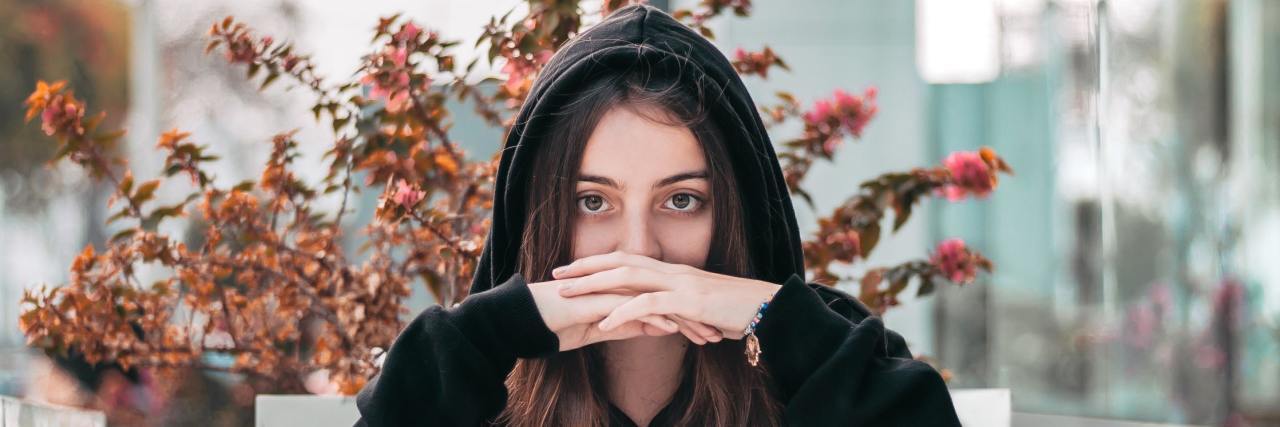I have obsessive-compulsive disorder. OCD. The acronym the general population flippantly uses to describe being organized, neat, a “clean freak” or liking things to look a certain way. They say things like:
“I’m so OCD.”
“That messes with my OCD.”
“OCD much??”
Whether it’s a result of how pop culture and the mainstream media use OCD as an adjective, or just a complete lack of awareness or understanding, it is clear to me people don’t actually know what the letters in the acronym stand for when they throw the term around, or the damage they are doing. They are not “harmless” comments.
Break it down. Obsessive. Compulsive. Disorder. Obsessions are unwanted, intrusive thoughts, images or urges that are extremely distressing. Note the word unwanted. They are not enjoyable — people who live with OCD do not derive pleasure from their obsessions and there is no choice or control over them. This differs vastly from the person who likes to color-code their wardrobe because it is visually appealing to them, or who claims to be “so OCD” because they like the dishwasher packed a certain way. Compulsions are repetitive behaviors or thoughts a person uses to neutralize, counteract or make their obsessions go away. People with OCD don’t want to have to perform their compulsions. They don’t want a life controlled by the often highly complex rituals they feel they must do to neutralize the obsessions. Imagine your body being in a constant state of fight or flight because your amygdala is continually firing and misinterpreting “safe” things as dangerous and non-threatening stimuli as threatening. Am I starting to paint a picture here? It is not fun. It is not a cute quirk. It is not a joke. Please stop joking about it.
At the time I was diagnosed, at age 30, I had very poor insight. I was very sick and life wasn’t pleasant for my husband and kids. The nature of my obsessions and compulsions meant although I am a relatively intelligent, rational person, I couldn’t see what was real and what was not. I lived in constant, debilitating fear of what would happen if I didn’t perform my compulsions. At this time, I was losing six to eight hours a day to the obsessions and compulsions. Sometimes more. It was all-consuming at this point. I was barely “present” for my kids and I missed so much, despite physically being there. I was plagued by terrifying nightmares where I would wake up so many times a night experiencing the fear and physical sensations of my OCD that I dreaded even having to go to sleep. I have touch hypersensitivity and experience sensory events — my skin burns if something “unsafe” touches me. It continues to burn until I can clean it a certain way. It’s very difficult for me to explain exactly how my OCD manifests, but it revolves around food being “dirty” and essentially means everything outside of the bubble of safety I have created in our home represents a threat to me.
Things have improved with medication, exposure and response prevention therapy (ERP) and lots of work. ERP was, and is, the hardest thing I have ever done. My insight is pretty good and I’m probably down to one to two hours a day in terms of the time the obsessions and compulsions take up. I know I will always have OCD, will take medication for the rest of my life and will have to work really hard to maintain my health. I’m terrified one of my kids will develop it, given the hereditary nature of the disorder.
So, I will keep learning as much as I can so I can identify it and help them to live with it if they do. If it does happen to one of them, it’s not going to take the average 14 to 17 years before they are diagnosed. They will not be like me, going undiagnosed for 20 years, going through all its different manifestations.
And that starts with me being brave enough to start asking people not to trivialize OCD and to educate themselves. To stop hurting every time someone makes a misinformed comment and start owning who I am. I am not brave, and I’m not someone who shares personal information, so yes, I am afraid of coming out and saying this. Afraid of the judgment, of being watched, of being pitied, of my work judging me, of it being assumed I can’t be a functioning member of society — because I am. I know people will talk. But I have decided that’s OK. And I’ve decided it’s OK because every time someone makes a joke about OCD, another barrier goes up to people seeking treatment or understanding what is happening to them. People continue to be ashamed, embarrassed and scared of how people will react. If people only knew how debilitating this disorder is and the amount of people who lose their lives to this monster, maybe, just maybe, they’d start thinking about the language they use. Because it does matter.
Unsplash image by Christian Ferrer

